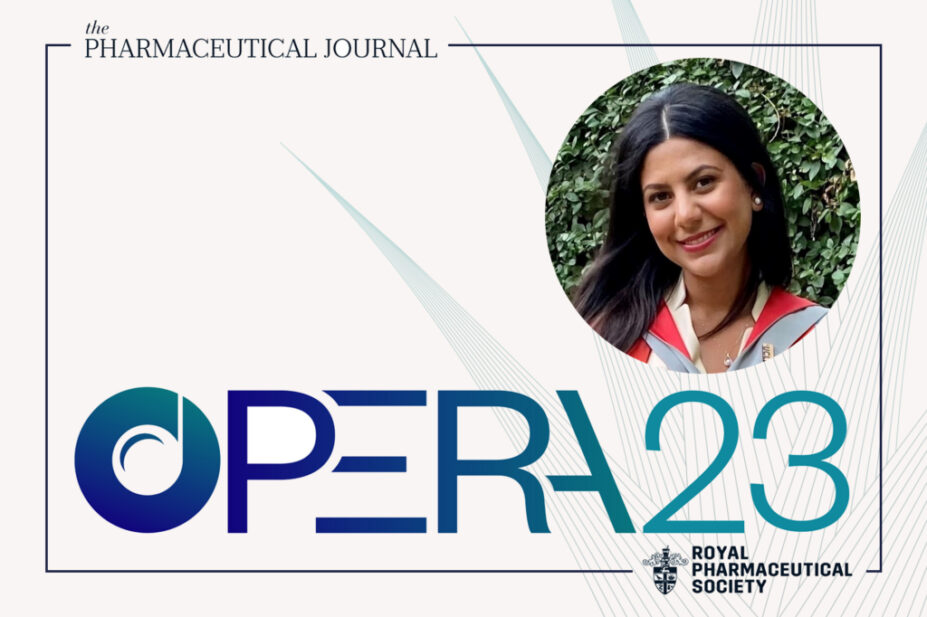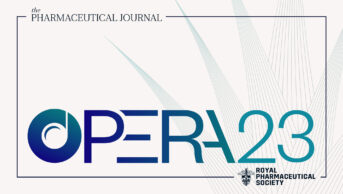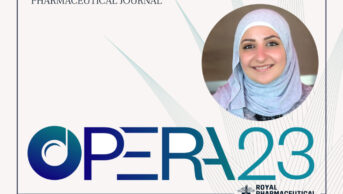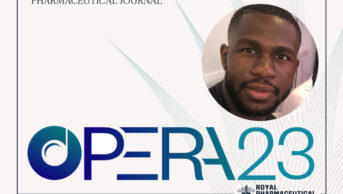
For many patients, the formulation of a medicine is a hardship that has to be endured. Swallowing difficulties and unpleasant taste can present significant barriers for patients in taking and adhering to their medicines, none more particularly than young children.
“Some drugs — like antimalarials, anti-[tuberculosis] medicines or HIV medicines — taste awful but also the tablet is huge. If we can improve the acceptability of these lifesaving medicines, especially in children, you can begin to positively impact lives.” Hend Abdelhakim says she is at the cutting edge of solving these problems, as her research focuses on new, advanced manufacturing techniques that use nano-fabrication technologies to effectively taste-mask medicines.
After qualifying in 2015, Hend began her career working as a community pharmacist in Liverpool, before taking up a position as data and quality manager for a clinical trials company in 2016. From here, her desire to expand her skillset and move closer to research grew and, later in 2016, she received a scholarship to complete her PhD studies at the University College London School of Pharmacy.
Hend’s research focuses on developing original solutions to long-standing problems. She is the first researcher to test the acceptability of oral films produced using electrospinning — a nano fabrication technology — and her work has already led to new taste-masked medicines becoming available.
“Production using electrospinning not only improves the bioavailability of the drug due to improved surface area, but also allows for individual fibres to be coated, to fully mask the taste of the medicine,” she explains. Hend’s work is paving the way for this technology to be more widely adopted within pharmacy. She is also a pioneer in the use of ‘E-tongue’ technology, which provides a cost-effective and scalable method for further integrating palatability testing into the drug development process.
Hend is currently focused on bringing the benefits identified in her research to a wider range of medicines and has started to commercialise the application of these technologies through start-up company Gustoceutics Ltd, which she founded in 2022.
One aspect that stood out from Hend’s nomination is her patient-centred mindset and the desire to improve equitable access to medicines, both within the UK and internationally.
Hend is now exploring other potential uses for electrospinning and is actively working on additional applications of the technology. “If electrospinning can give us that improved stability, then why can’t we use it to produce oral vaccines or oral insulin?” she asks. “What about developing more tablet forms for certain antibiotics to remove the need for cold storage and [make them] easier to transport around the world? It’s a hugely exciting area to be involved with.”
Panel comments
“This is interesting, and quite original work, particularly in the field of bespoke 3D printing of minitabs for children.”
“Excellent illustration of leadership through co-founding of Gustoceutics and ongoing involvement in education of others.”
Publications
Hu J, Fitaihi R, Abukhamees S & Abdelhakim HE. Formulation and Characterisation of Carbamazepine Orodispersible 3D-Printed Mini-Tablets for Paediatric Use. Pharmaceutics 2023;15(1),250. doi: 10.3390/pharmaceutics15010250
Bashir S, Fitaihi R & Abdelhakim HE. Advances in Formulation and Manufacturing Strategies for the Delivery of Therapeutic Proteins and Peptides in Orally Disintegrating Dosage Forms. European Journal of Pharmaceutical Sciences. 2023;182:106374. doi: 10.1016/j.ejps.2023.106374
Adenot CC & Abdelhakim HE. Palatability assessment of oral dosage forms for companion animals: A systematic review. Journal of Drug Delivery Science and Technology. 2022;103841. doi: 10.1016/j.jddst.2022.103841
Abdelhakim HE, Brown L, Mills L et al. Medical and pharmacy students’ perspectives of remote synchronous. 2022;10;22(1):611. doi: 10.1186/s12909-022-03675-2
Li J, Liu Y & Abdelhakim HE. Drug Delivery Applications of Coaxial Electrospun Nanofibres in Cancer Therapy. Molecules. 2022;10;27(6):1803. doi: 10.3390/molecules27061803
Abdelhakim HE, Coupe A, Tuleu C et al. Utilising Co-Axial Electrospinning as a Taste-Masking Technology for Paediatric Drug Delivery. Pharmaceutics. 2021;13(10):1665. doi: 10.3390/pharmaceutics13101665
Tawfik EA, Scarpa M, Abdelhakim HE et al. A Potential Alternative Orodispersible Formulation to Prednisolone Sodium Phosphate Orally Disintegrating Tablets. Pharmaceutics. 2021;19;13(1):120. doi: 10.3390/pharmaceutics13010120
Ekweremadu CS, Abdelhakim HE, Craig, DQM et al. (2020). Development and Evaluation of Feline Tailored Amlodipine Besylate Mini-Tablets Using L-lysine as a Candidate Flavouring Agent. Pharmaceutics. 2020;24;12(10):917. doi: 10.3390/pharmaceutics12100917
Abdelhakim HE, Williams GR, Craig DQM et al. Human mouthfeel panel investigating the acceptability of electrospun and solvent cast orodispersible films. International Journal of Pharmaceutics. 2020;30;585:119532. doi: 10.1016/j.ijpharm.2020.119532
Abdelhakim H, Coupe A, Tuleu C et al. Electrospinning optimisation of Eudragit E PO with and without Chlorpheniramine Maleate using a Design of Experiment Approach. Molecular Pharmaceutics. doi: 10.1021/acs.molpharmaceut.9b00159
Lukac I, Abdelhakim H, Ward RA et al. Predicting protein-ligand binding affinity and correcting crystal structures with quantum mechanical calculations: lactate dehydrogenase A. Chemical Science. 2019 doi: 10.1039/C8SC04564J
You may also be interested in

The 2023 ‘Outstanding Pharmacy Early-career Researcher Award’ judging process

Atheer Awad
